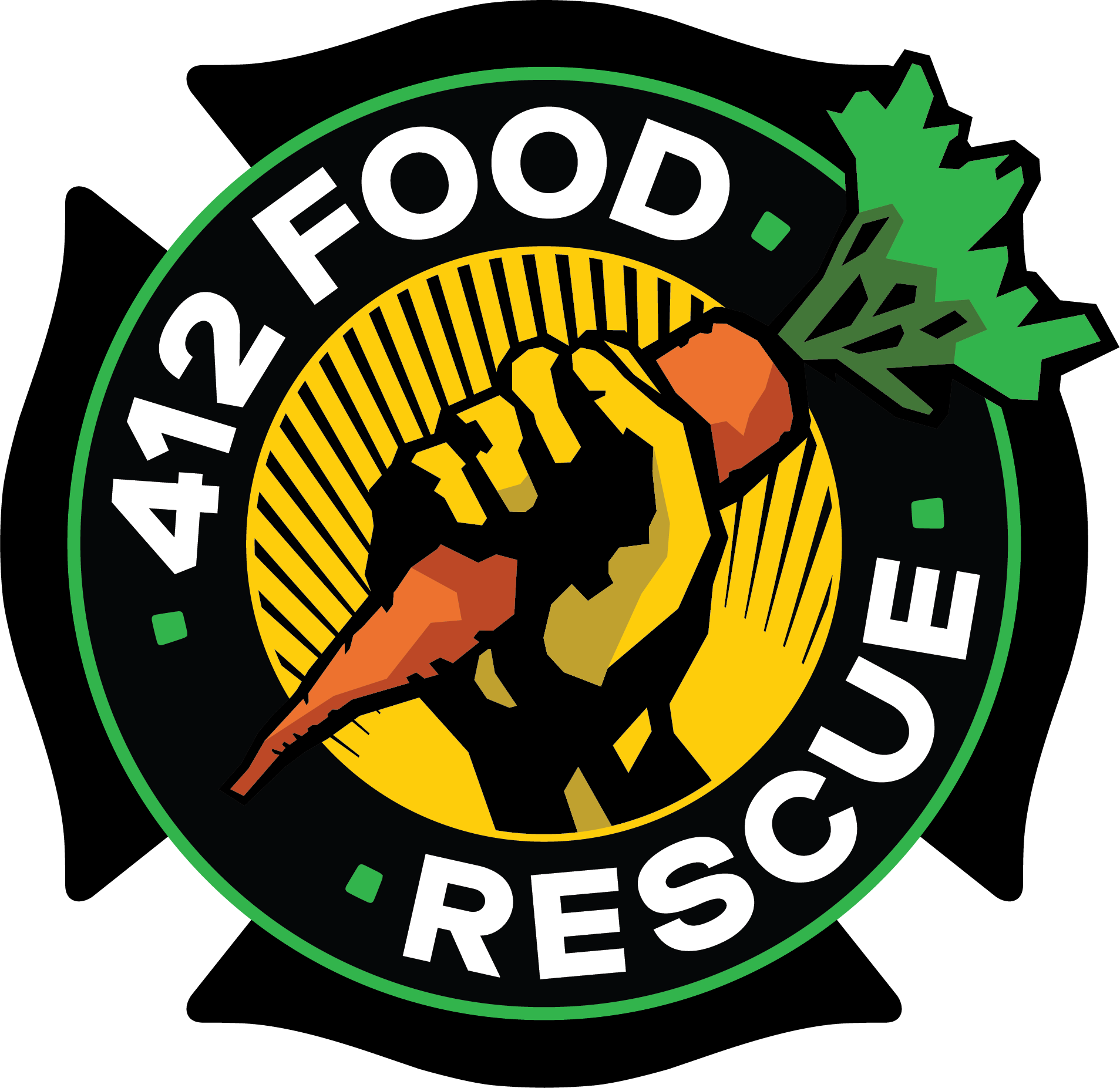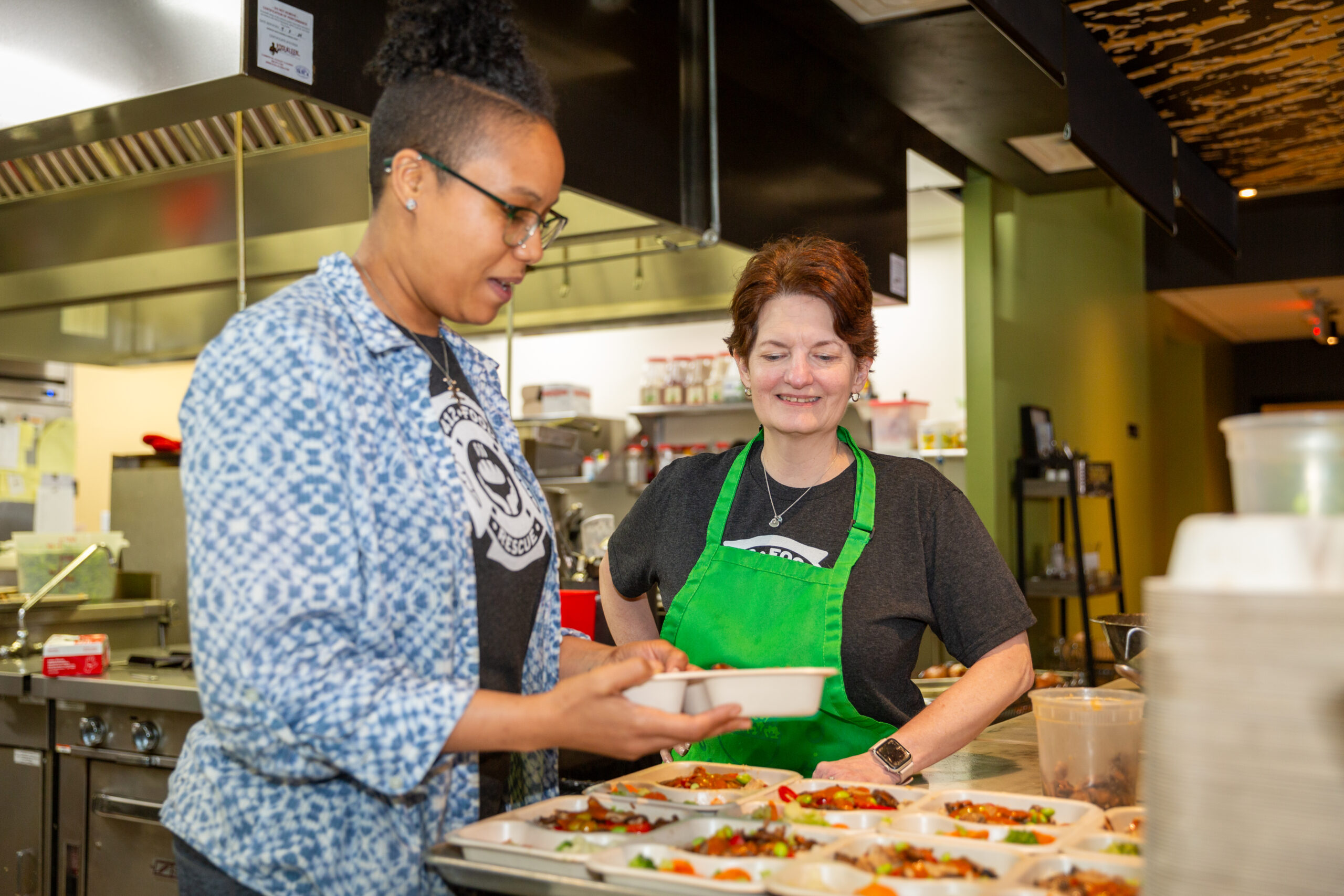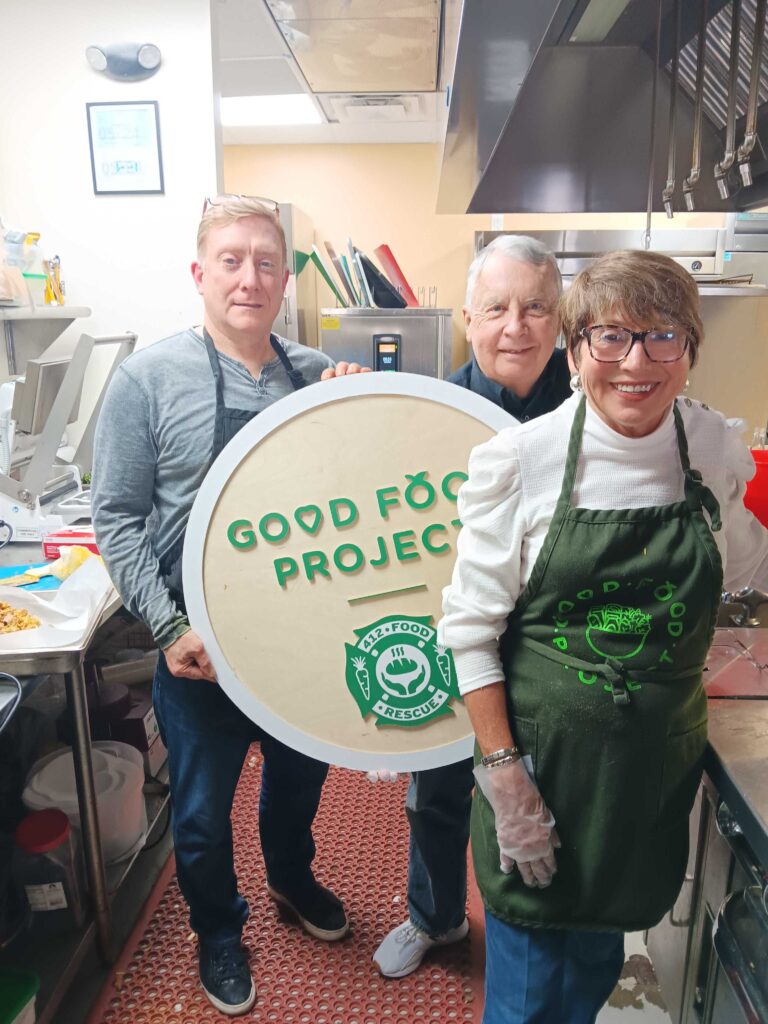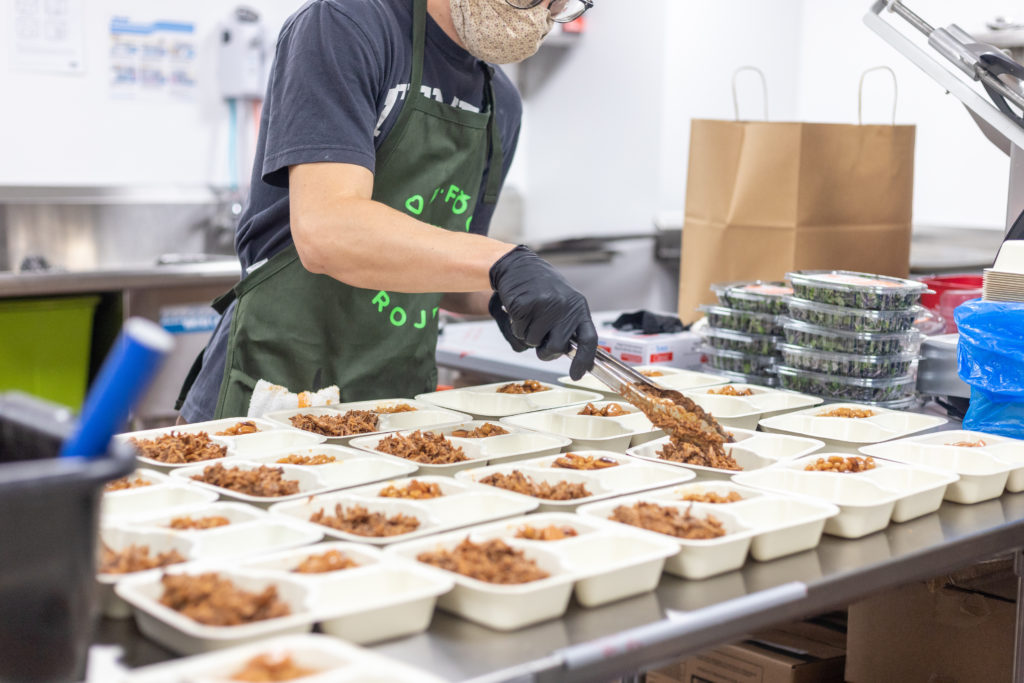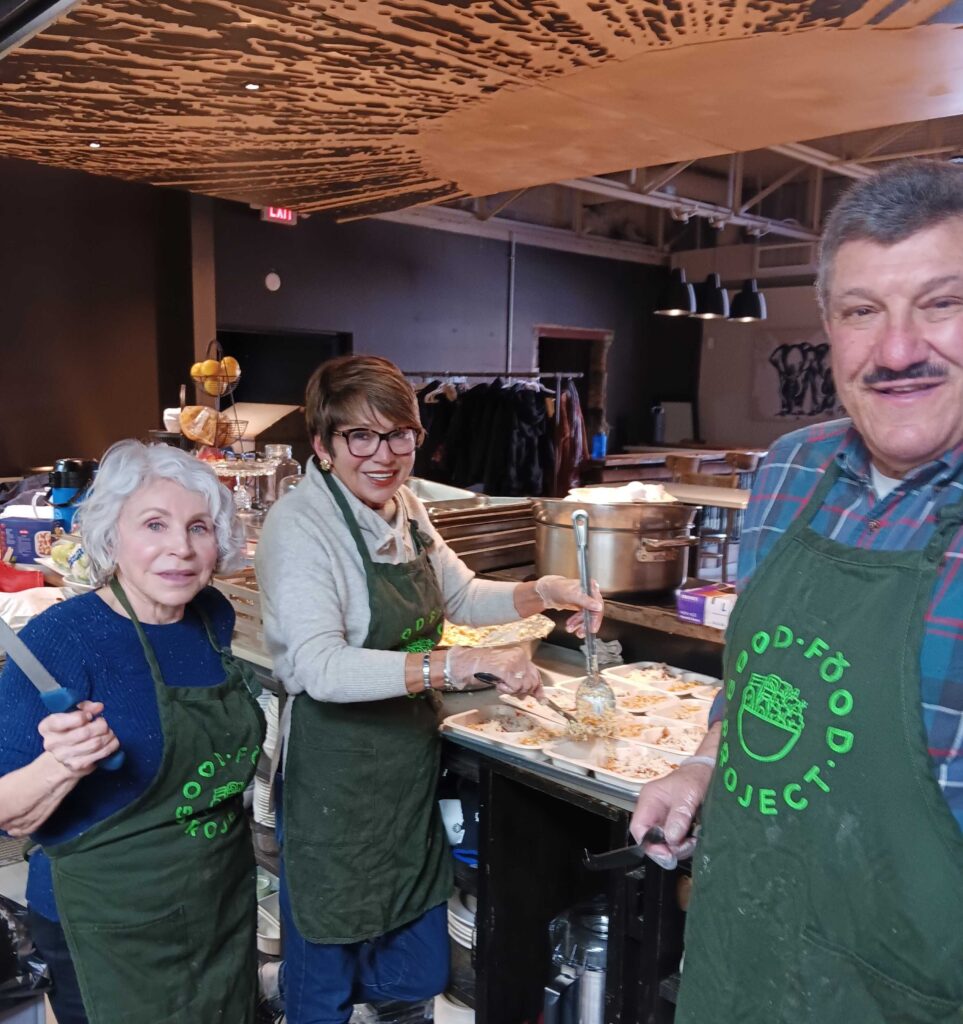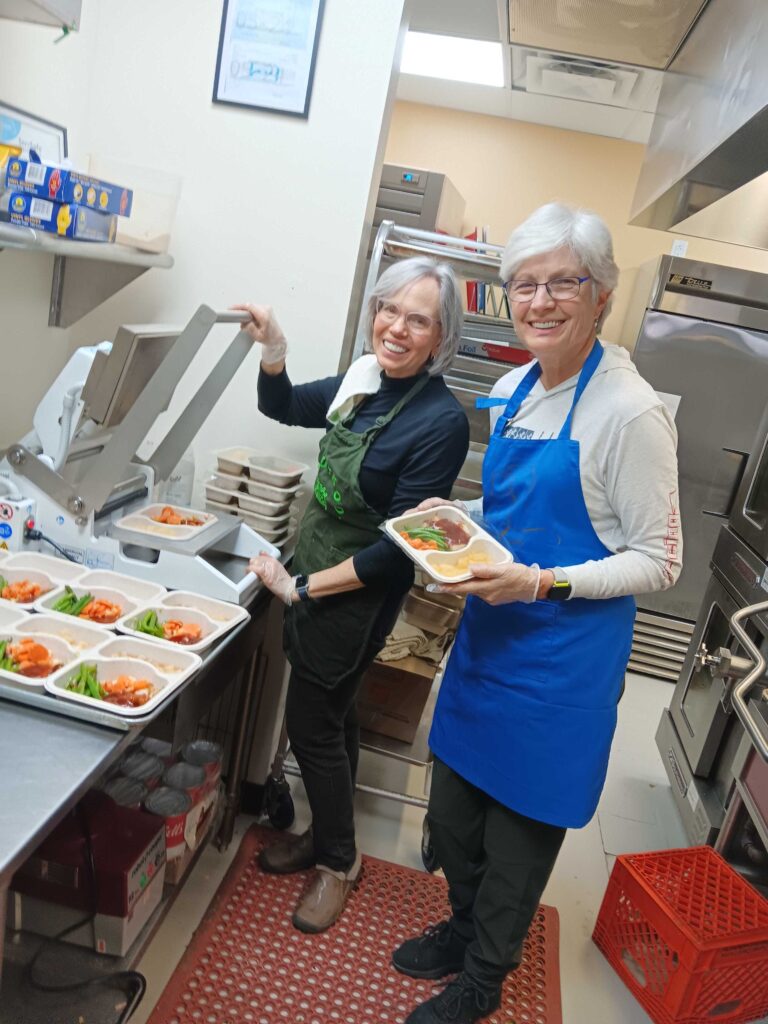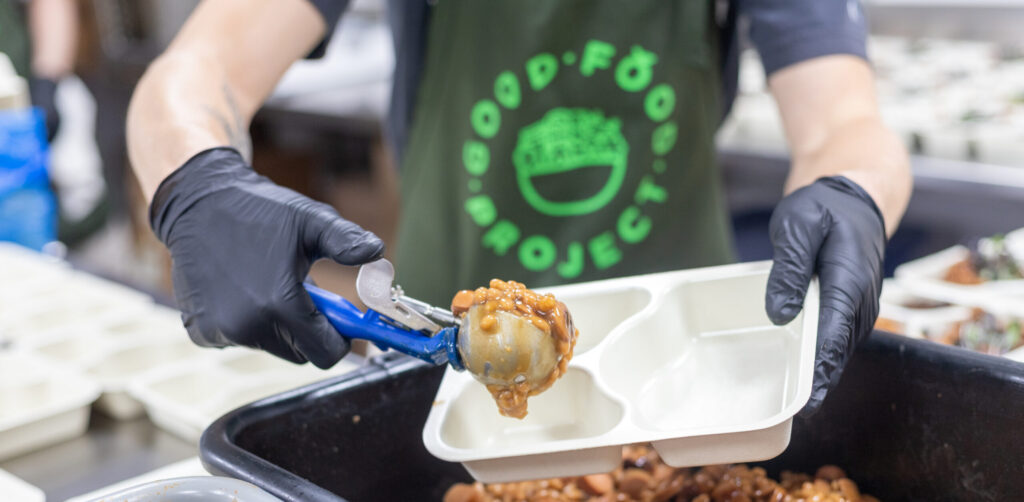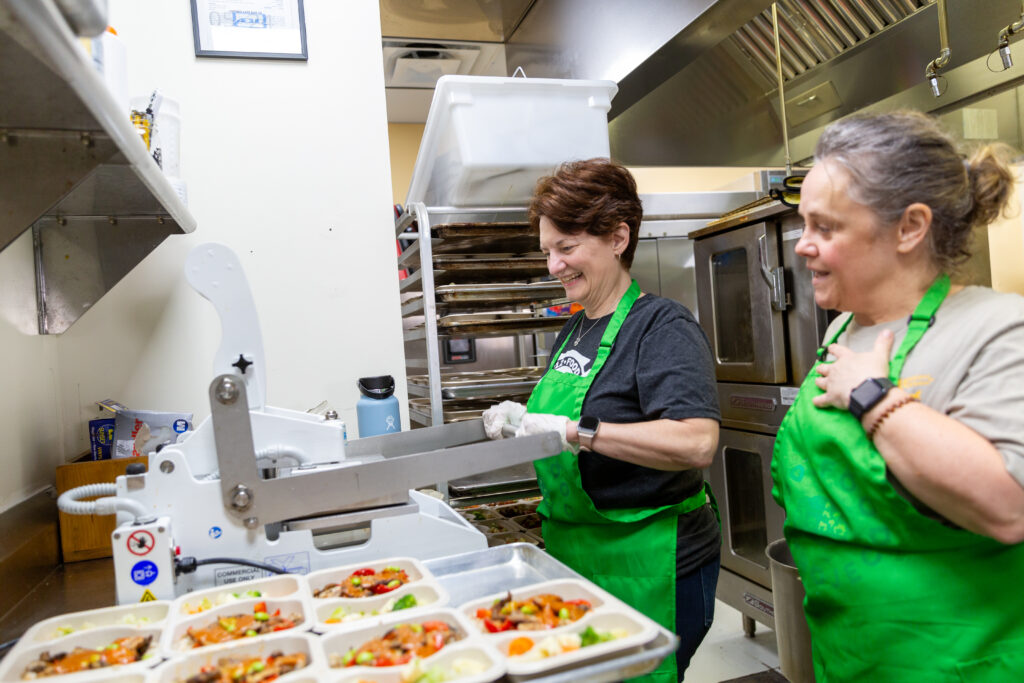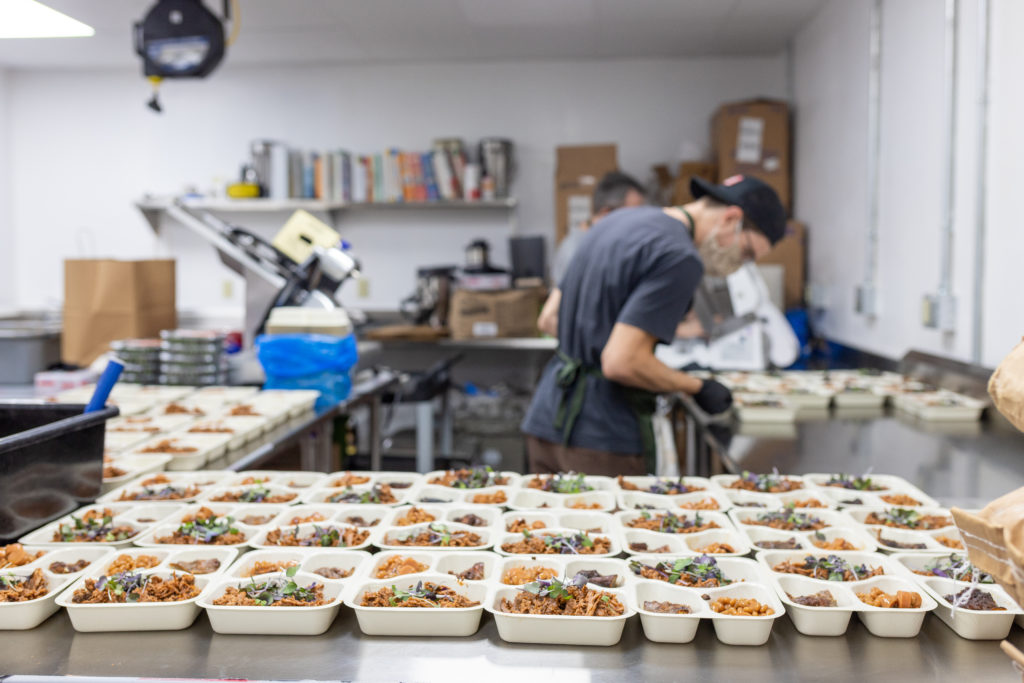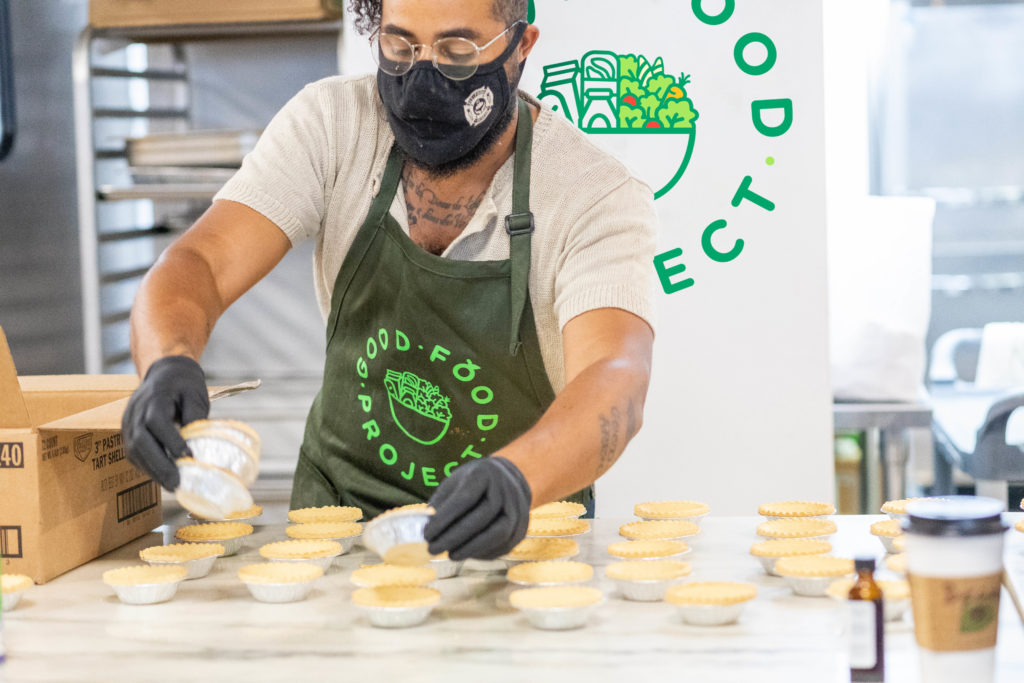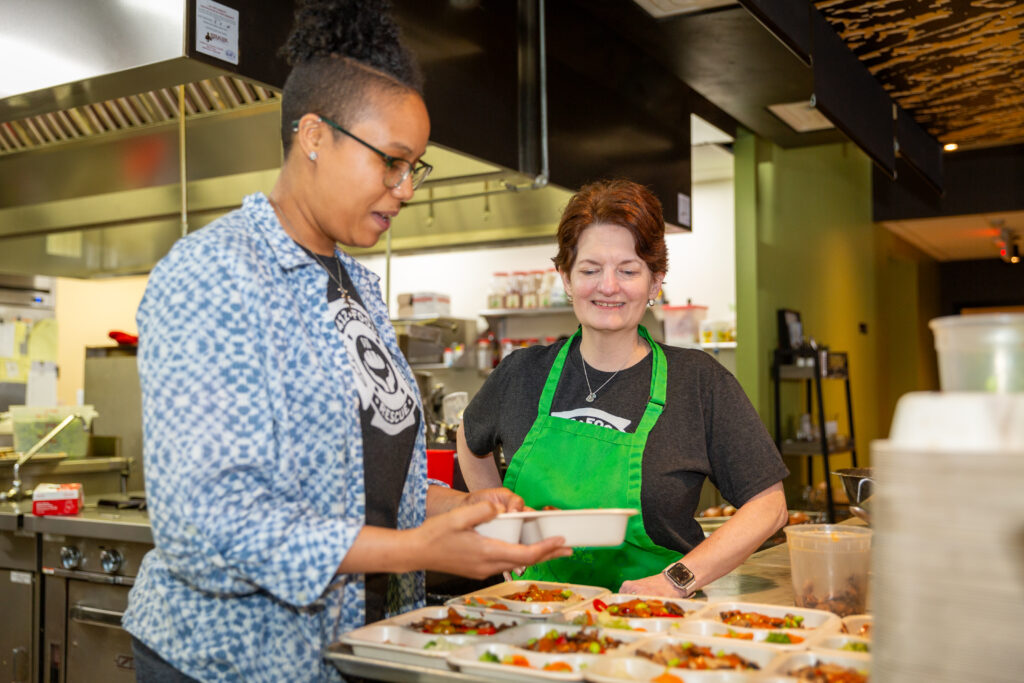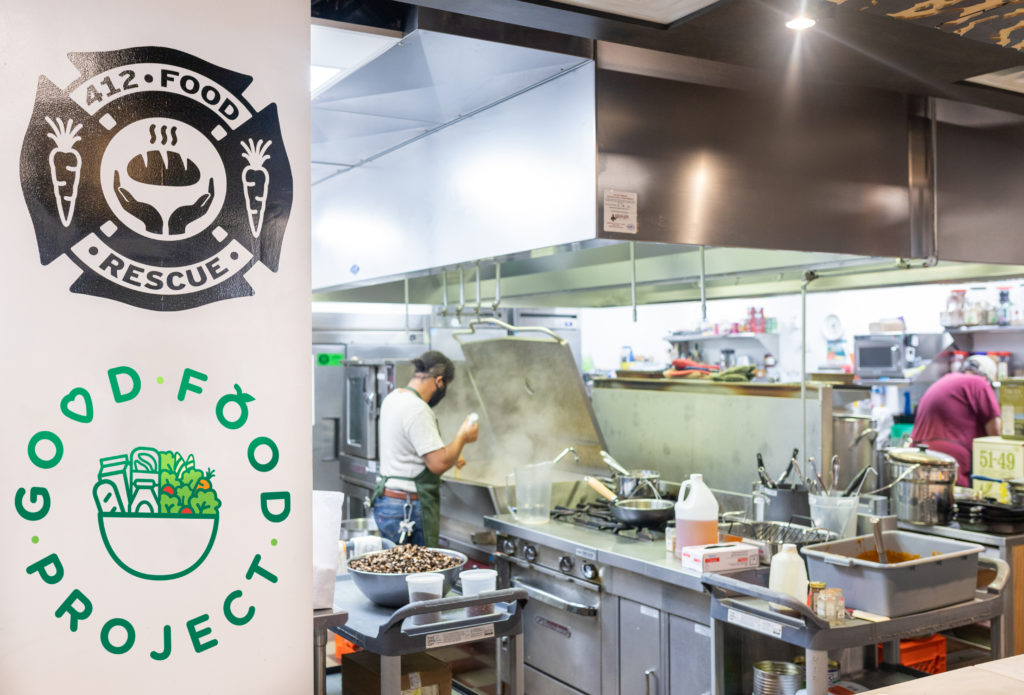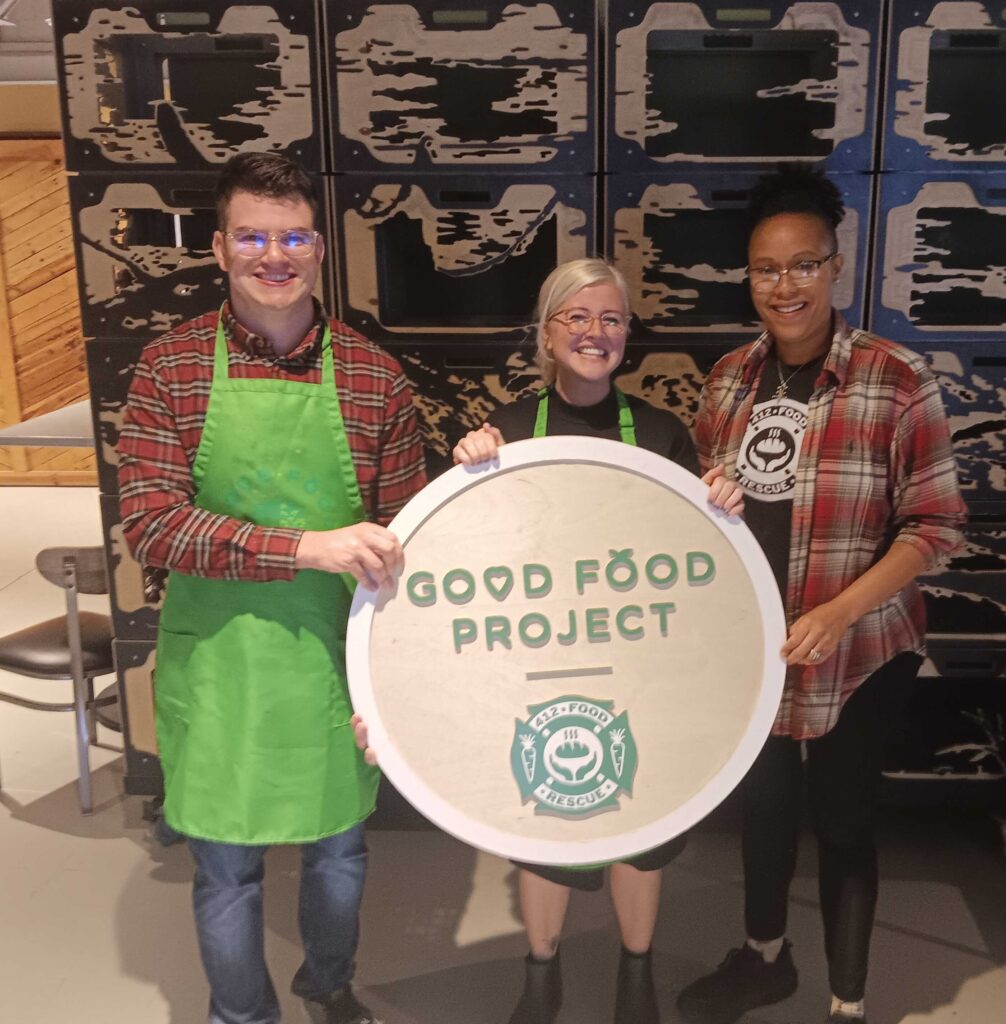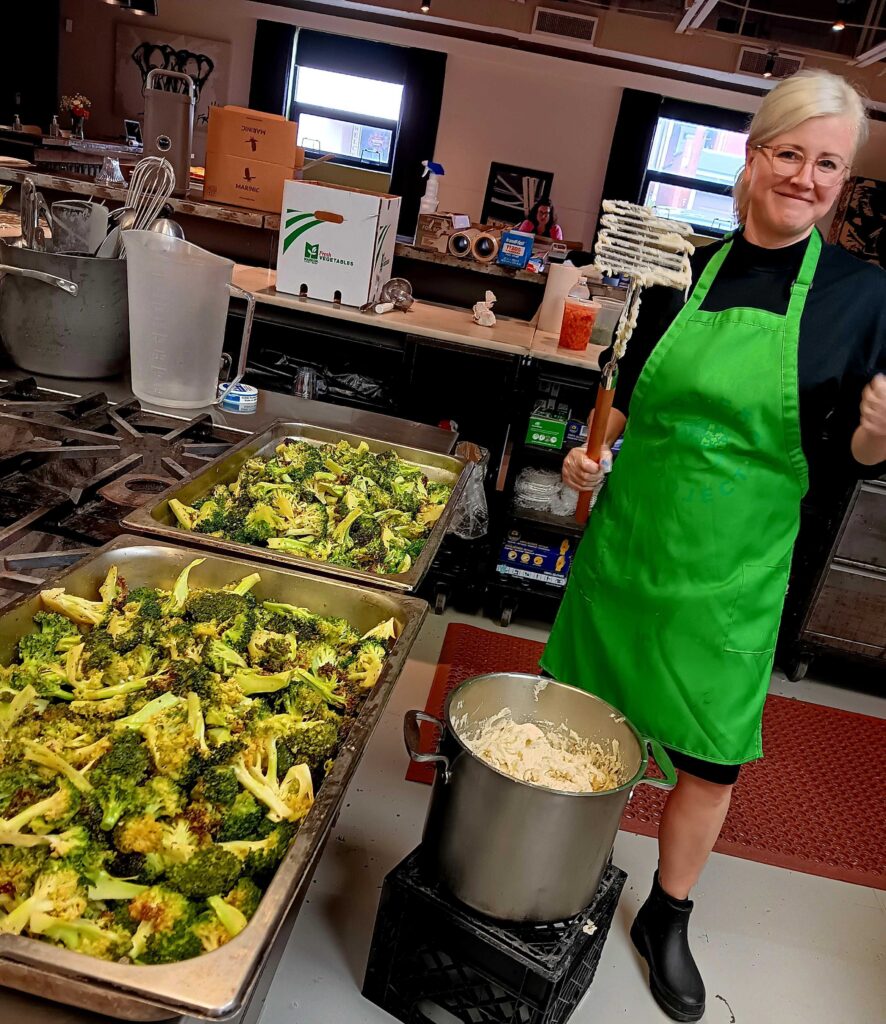June is Upcycled Food Month, a time to celebrate innovative ways to reduce waste and promote sustainability. At 412 Food Rescue’s Good Food Project, we embrace this concept by transforming surplus food into transportable, reheatable meals for those in need.
What is Upcycling
In a 2020 article, researchers from Drexel University published a clear definition of “upcycling” as definitively adding value beyond recycling a material: for surplus food, “upcycling would be to take that food and divert it from compost [or landfills] to a more valuable product.”
“Upcycled foods use ingredients that otherwise would not have gone to human consumption, are procured and produced using verifiable supply chains, and have a positive impact on the environment.”
Why Upcycle at 412 Food Rescue
While the vast majority of the food 412 Food Rescue transports is ready to be consumed or to be split up for manageable pantry stocking, some items require preparation due to the sheer quantity donated or how difficult it would be to place. In order to lower barriers to access for our nonprofit partners and the communities they serve – as well as to make sure we’re capturing as much surplus food as we can – we send these items to the Good Food Project, where Chef Alexa Waugh and her team prepare and package nutritious meals made entirely from rescued food.
Just like the Food Network’s hit show “Chopped”, where contestants are given a mystery basket of ingredients and asked to create dishes from them on the spot, the Chef Alexa must operate in a similar fashion – 5 days a week.
Each week, the Good Food Project receives new deliveries from within our network of food donors, and Chef Alexa must act quickly to incorporate these ingredients into her meal plans. She and a team of volunteers prepare, assemble, package and freeze the completed meals daily. Her record is an impressive 400 meals in one day!
Individually packaging these meals plays a large role in mitigating food waste and food insecurity in our Pittsburgh community:
- These bulk donations of food are difficult for nonprofit organizations to accept and distribute to the populations they serve, and would otherwise go to waste;
- The meals provide quick, easy, and nutritious home-cooked meals that can be reheated for those with busy schedules;
- Freezing these meals extends the shelf life of these foods from 5 days to 9 months.
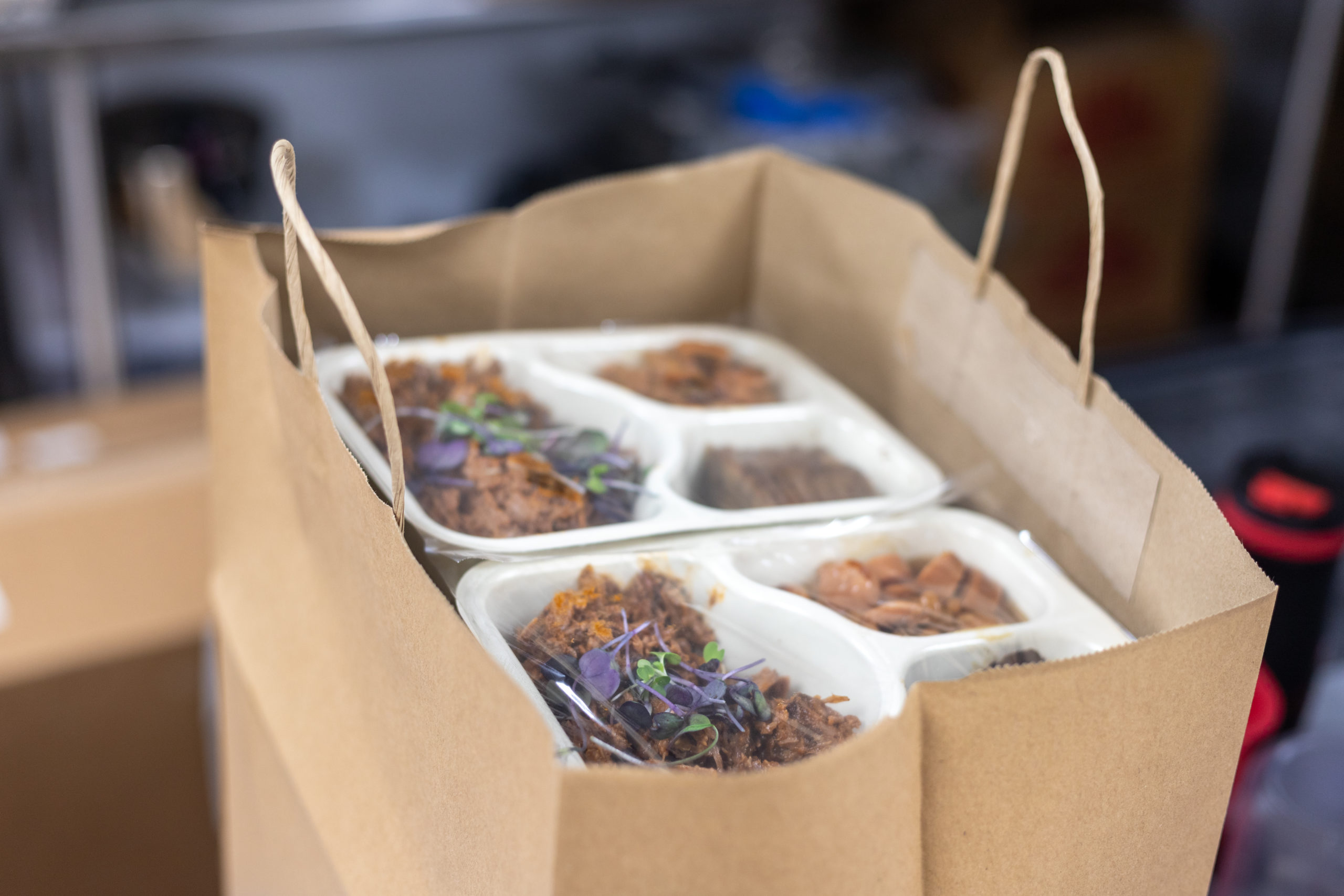
This simple but effective method of bulk-preparing meals, packaging, and freezing them ensures that more food feeds people rather than ending up in landfills.
Get Involved
We invite you to join our volunteer team at the Good Food Project Kitchen and experience the rewarding process of upcycling firsthand. Together, we can make a difference in our community by turning surplus food into valuable meals.
